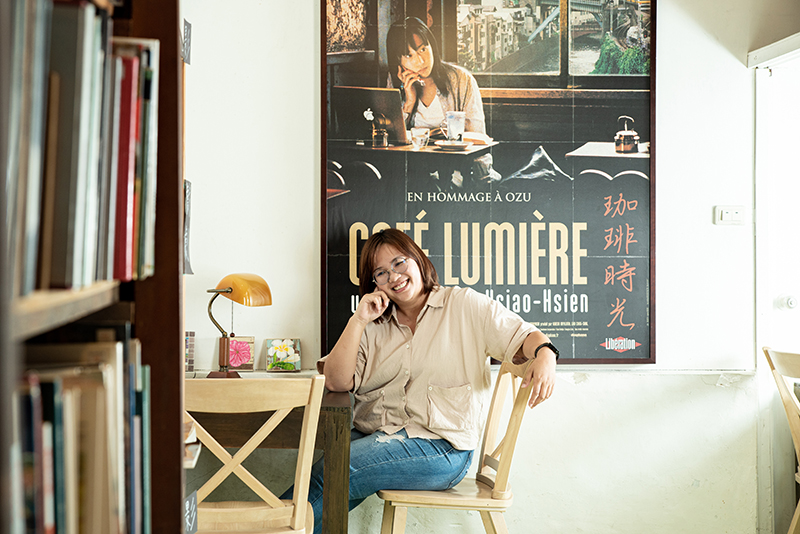
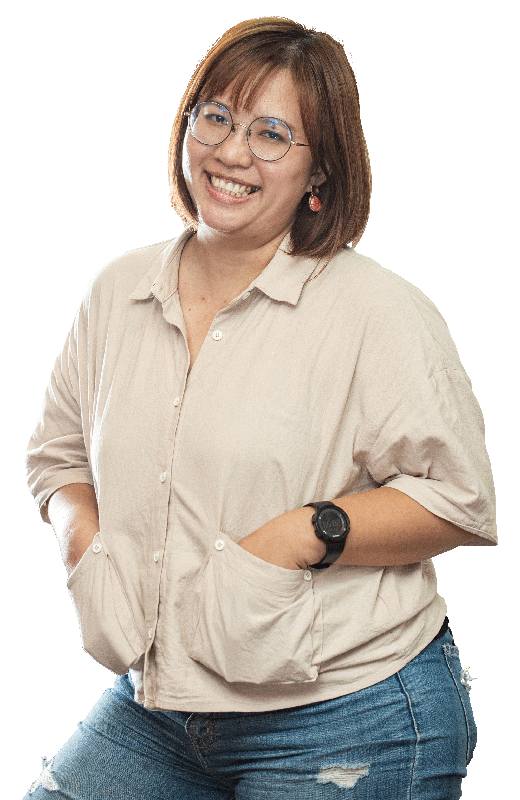
“When I make a film, I always have a goal: to make peace with myself. Every time I complete a documentary, I would be the one who had changed the most. The process is a chance for me to reconsider my relationships with other people and adjust my expectations of others.”
With childhood experiences such as community relocation and broken family relationships, adult Kawah Umei realized the emotions buried deep in her heart which she had neglected to address are the reason why she cannot just “let go and move on” with life. Thus she bravely took up a filming camera and began to document and sort out the lives and relationships between her and other people, and seek out the best way to get along with them.
During the Japanese Colonial Period, Hualien’s Lintian Mountain was a forestry station. The area attracted many indigenous peoples, Hakka, and Mainlanders to the region to seek a living. However, regulations that prohibited logging were announced in the 1990s and that led to a gradual exodus of the region’s residents. Eventually Lintian Mountain lost its appeal and became desolate. Documentary director Kawah Umei’s family moved to Lintian Mountain at its heyday. She witnessed Lintian Mountain at its pinnacle and the following recession, during which the family moved away; and this experience deeply affected how Kawah perceived her ethnic identity.
Kawah was born in Cilo’ohay Community in Lintian Mountain. Since this unique community was created because of economic reasons, it has a relatively short history (less than a century) and its residents consist of diverse ethnic groups who cannot live here permanently due to national dormitory regulations. This is very different to other traditional indigenous communities which have existed and developed in the same location for generations – they have their own territory and comprehensive social class structure and rituals. “It’s very difficult for me to explain my community to other people. It is completely dissimilar to what society views as a “typical indigenous community”. So I have always been unsure about whether I really grew up in an indigenous community or not.” Kawah explained awkwardly.
Kawah did not know how to explain herself and her identity to the external world. Outsiders also regarded Cilo’ohay as very different to other average communities. Lintian Mountain was controlled and managed by the Japanese Colonial Government, thus the region was deeply influenced by Japanese culture. Local schools would often hold cleanliness contests and were very particular about the way students dress. Moreover, since Lintian Mountain region started developments earlier, the residents are more financially stable and most of the children have better education. Understanding the advantages of being in the right social class, Kawah’s father chose to send his children to the school in town rather than let them stay in Cilo’ohay.
Kawah moved from Cilo'ohay to Cingaroan Community in Fonglin Township when she was four, and later went to school in another town. She was one of the best performing students in class. Nevertheless, these were not common life experiences of other indigenous children in general, and consequently prompted another identity crisis for Kawah. “I did better at school and dressed neatly, so other classmates did not dare to bully me. But when I spoke out for other indigenous classmates, they would say ‘you are not one of them’. I did not realize that not looking like an indigenous child and not living in an indigenous community would cause trouble for me.” Kawah said.
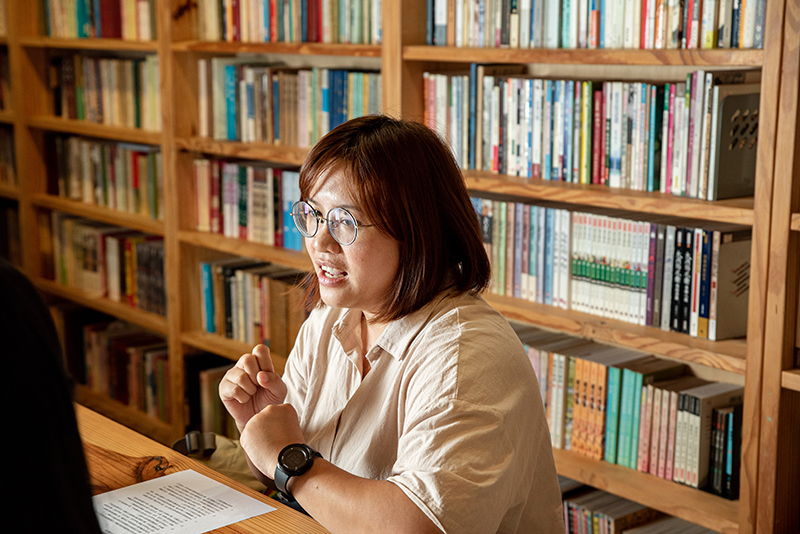
Arriving at the City of Her Dreams
But Losing Her Original Culture
Just like many children from the east coast, Kawah dreamt of moving to Taipei when she grew up. Kawah’s dream came true when she started studying social psychology at a university in Taipei. Yet this move would later trigger her desire to continuously look back and reflect on her life.
The Department of Social Psychology has group dynamics courses starting from freshman year. Students share their personal thoughts with classmates and upper classmen to practice the process of looking back on their lives and experiences. The course helped Kawah learn more about herself; and yet every time she dug deeper into childhood memories, she felt great pain.
“The model is a way to practice interview skills. But when we are so focused on the counseling relationship and not doing enough to handle the complex emotions, it can generate a lot of problems.” When asked about the turning point in her life, Kawah smiled. “One day I was taking the bus to school, and suddenly realized I cannot carry that kind of mental pressure anymore. So I took the bus home and dropped out of school.”
A passionate lover of film festivals, Kawah later passed the exams and entered the Department of Motion Picture at National Taiwan University of Arts. Realizing she is not that comfortable with her life in Taipei, Kawah chose to express the changes in her mind in her assignments. Pangcah Made Pangcah, Kawah’s first film, focused on the theme “take off those high-heels”. She finds wearing high-heels uncomfortable, yet many women have to wear them. “Women should be free of restrictions. As for me, I want to escape from the question of ‘who am I?’. I used to wish to live in the city, and believed that I would receive a lot of wonderful experiences here. But as I try so hard to become someone who can communicate with everyone, I have forgotten my own original culture.” Kawah admitted that she felt conflicted and did not know what to do.
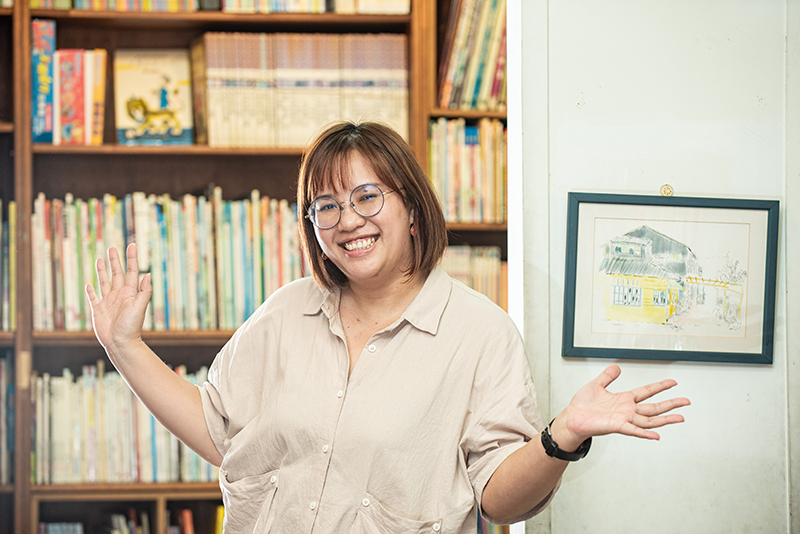
Picking Up the DV
and Reexamining Her Relationship with Her Father
Therefore she decided to use an objective perspective to record everything her father did at Cilo'ohay, and eventually managed to reclaim her own culture identity.
Kawah's father is the community Chief of Staff and also one of the few residents that stayed behind in Lintian Mountain. Year after year, he organizes the Ilisin and is dedicated to reviving local community culture. Kawah remembers helping out every year since she was little. Now an adult, she began to film the process with a DV. “The first year of filming was fun, the second year was a little boring.” Kawah said with a laugh, “when the third year came around, I just recorded whatever I found interesting.”
She considered the event boring because the Ilisin organized by her father was just like any average community annual event. It did not have the emotional connections and cultural identity of the people. Kawah collected a lot of information from books and publications, and realized that the Ilisin at Cilo'ohay is definitely not the same as those held in traditional Pangcah communities. “What I could not accept back then was why is my community so different to what I thought it was? Why doesn’t my community have rituals and social class structures? I could not document how my community operated and worked.” Kawah tried to understand her own cultural roots, yet was very frustrated. “I’d often think what my parents gave me was not what I wanted. Just like the Ilisin organized by my father is not the Ilisin I wanted to see.”
The current presentation of Cilo’ohay’s Ilisin is the product of different groups of people who dispersed and resettled here due to the circumstances of the era. Although the break in history and culture transmission caused by the migration cannot be mended, Kawah slowly began to understand her father’s choice as she came in closer contact with her family’s culture. “The process of documenting the Ilisin helped me adjust my attitude towards my father. I think I sort of understand his efforts. In the past I did not see his troubles and misunderstood him.” Kawah said slowly.
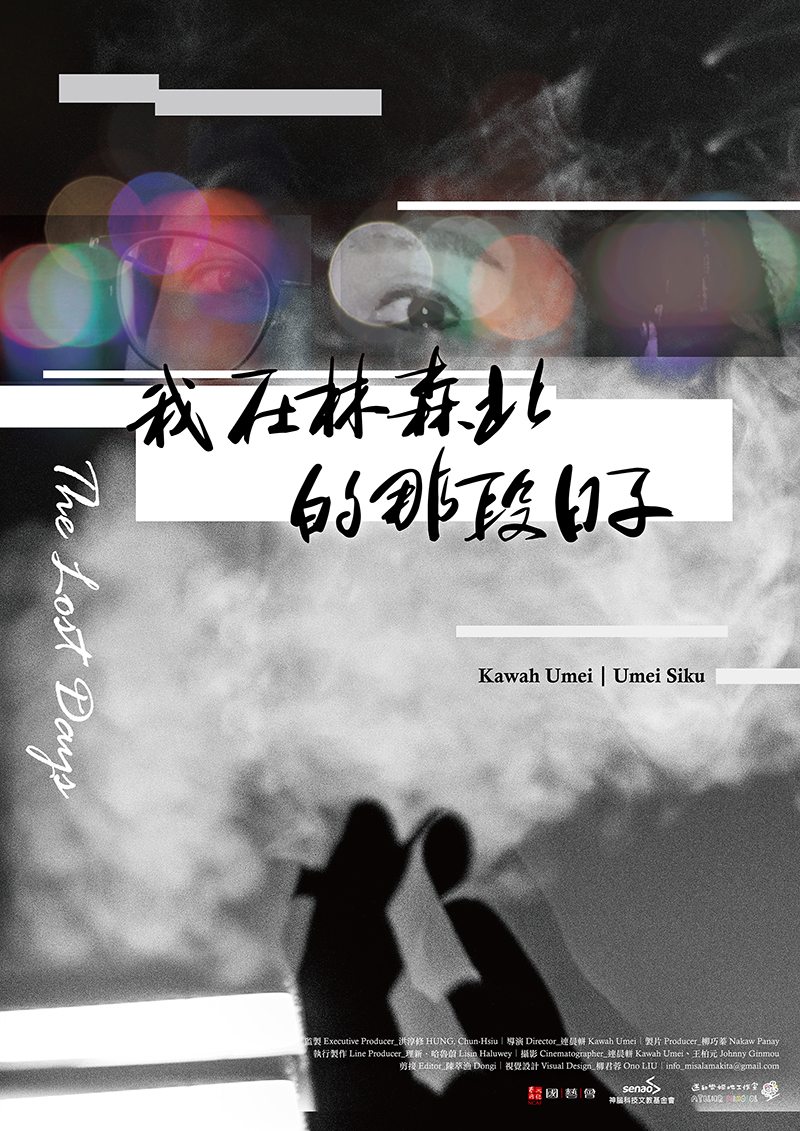
Photo credit: Kawah Umei
Facing Her Own Confusion
and Attempting to Make Peace with Others
Kawah had another question in her heart that needed answers as she gradually rediscovered herself through filming documentaries. Back then when married couples rarely divorced, her mother split up with Kawah’s father, left her hometown determinately and went to work in Taipei on her own.
When Kawah visited her mother in Taipei, she would sometimes run into Uncle. Yet during the 28 years Kawah knew about Uncle’s existence, her mother never clearly explained her relationship with this man. Why did Mother devote herself to a Japanese man for so long? That was not Kawah’s only question. Kawah remembers when her mother was working, she was extremely confident. She sang and socialized with her customers with ease, as if she owned the place. However, after she left the work place, Mother lost her individual identity and transformed into a person who fulfills the traditional role and expectations of a mother, lover, and simply, a woman.
In order to explore the intricate relationship between her mother and the Japanese Uncle, Kawah started to film The Lost Days. It was an opportunity for her to re-know her mother, and reexamine her attitude towards Uncle. In the film, Kawah documented the thoughts and feelings of mother and daughter when they were separated and her mother was working in Linsen North Road. It also shows interactions between her mother and Uncle, and her mother’s thoughts and emotions when she left for Japan after Uncle’s death.
“Although I don’t really like Uncle, but he existed in my life for a very long time, and yet I never really knew him. When I became an adult, I thought, ‘why couldn’t I stay on friendly terms with this man?’ “ Kawah’s motivation for every film originates from her desire to make peace with herself; and the process gives her an opportunity to understand the lives of others and the difficulties faced by other people. Looking back, it has been a rough journey. But Kawah has reclaimed herself, who was once lost and confused, through these documentaries. Now she can open up her mind as a mature adult and find the most comfortable way to get along with other people.
